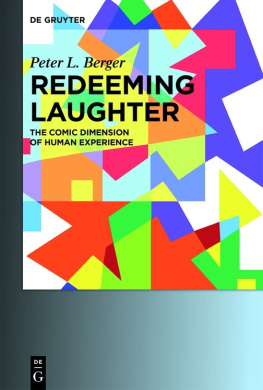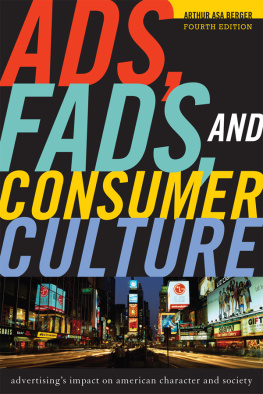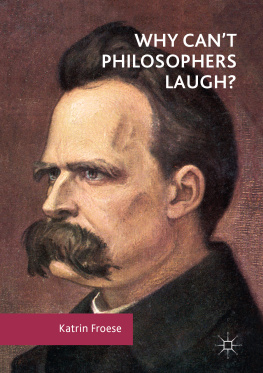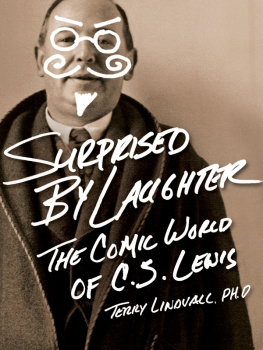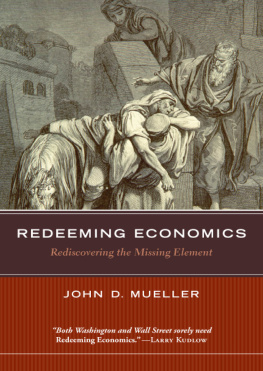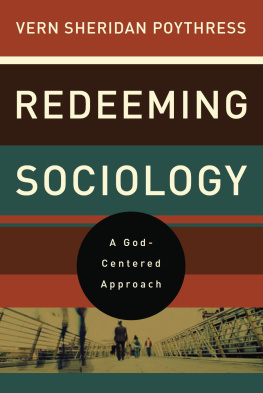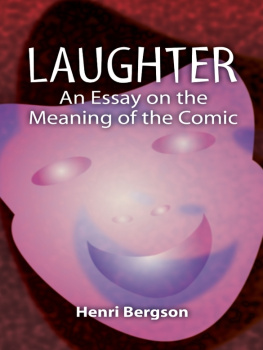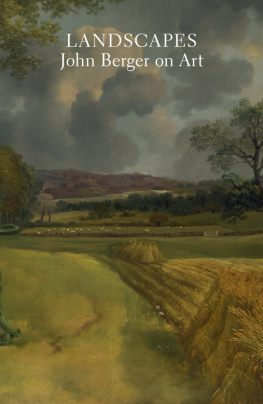Berger - Redeeming laughter: the comic dimension of human experience
Here you can read online Berger - Redeeming laughter: the comic dimension of human experience full text of the book (entire story) in english for free. Download pdf and epub, get meaning, cover and reviews about this ebook. City: Boston, year: 2014, publisher: De Gruyter, Inc., genre: Romance novel. Description of the work, (preface) as well as reviews are available. Best literature library LitArk.com created for fans of good reading and offers a wide selection of genres:
Romance novel
Science fiction
Adventure
Detective
Science
History
Home and family
Prose
Art
Politics
Computer
Non-fiction
Religion
Business
Children
Humor
Choose a favorite category and find really read worthwhile books. Enjoy immersion in the world of imagination, feel the emotions of the characters or learn something new for yourself, make an fascinating discovery.
- Book:Redeeming laughter: the comic dimension of human experience
- Author:
- Publisher:De Gruyter, Inc.
- Genre:
- Year:2014
- City:Boston
- Rating:3 / 5
- Favourites:Add to favourites
- Your mark:
- 60
- 1
- 2
- 3
- 4
- 5
Redeeming laughter: the comic dimension of human experience: summary, description and annotation
We offer to read an annotation, description, summary or preface (depends on what the author of the book "Redeeming laughter: the comic dimension of human experience" wrote himself). If you haven't found the necessary information about the book — write in the comments, we will try to find it.
Berger: author's other books
Who wrote Redeeming laughter: the comic dimension of human experience? Find out the surname, the name of the author of the book and a list of all author's works by series.
Redeeming laughter: the comic dimension of human experience — read online for free the complete book (whole text) full work
Below is the text of the book, divided by pages. System saving the place of the last page read, allows you to conveniently read the book "Redeeming laughter: the comic dimension of human experience" online for free, without having to search again every time where you left off. Put a bookmark, and you can go to the page where you finished reading at any time.
Font size:
Interval:
Bookmark:
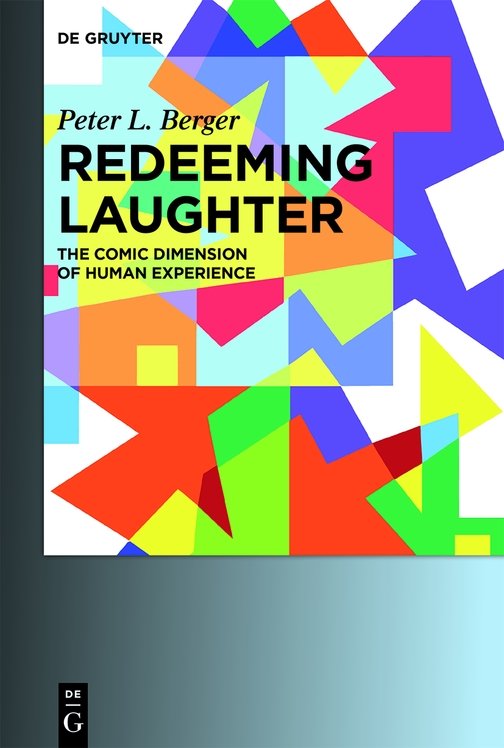
The Donkey
When fishes flew and forests walked
And figs grew upon thorn,
Some moment when the moon was blood
Then surely I was born.
With monstrous head and sickening cry
And ears like errant wings,
The devils walking parody
On all four-footed things.
The tattered outlaw of the earth,
Of ancient crooked will;
Starve, scourge, deride me: I am dumb,
I keep my secret still.
Fools! For I also had in my hour;
One far fierce hour and sweet:
There was a shout about my ears,
And palms before my feet.
G. K. Chesterton in The Wild Knight, from Robert Knille, ed., As I Was Saying: A Chesterton Reader (Grand Rapids, Mich., Eerdmans, 1985).
As we begin our circling around the phenomenon of the comic, a number of general questions at once suggest themselves: What is it? Where is it? How is it used? What does it mean? Given our circuitous approach (which is, or so it seems, dictated by the nature of the phenomenon), it will not be advisable to attempt answers to these questions in a rigorously systematic way. But it does make sense to make a preliminary stab, at least, at tackling the first question: What is this thing we are talking about?
An English-speaking individual with a measure of higher education is likely to start by taking out that great philological monument, the Oxford English Dictionary. Even if one is not interested at the moment in the ways a word has been used all the way back to Beowulf and the Canterbury Tales, one hopes at any rate to get an idea of current usage from the OED. Here, then, are some relevant definitions. Under comic: Calculated to excite mirth, intentionally funny. And a second definition: Unintentionally provocative of mirth; laughable, ludicrous. This seems a bit awkward: Why not simply say that the comic is something that, whether intentionally or not, is perceived as funny? In any case, this does not get one very far. Not to put too fine a point to it, what is really said here is that the funny is something that is seen to be funny. Then under humor: That quality of action, speech or writing, which excites amusement, oddity, jocularity, facetiousness, comicality, fun. And a B definition: The faculty of perceiving what is ludicrous or amusing, or of expressing it in speech, writing, or other composition; jocose imagination or treatment of subject. Added to these wonderfully imprecise if not circular definitions is the curious comment: Distinguished from wit as being less purely intellectual, and as having a sympathetic quality in virtue of which it often becomes allied to pathos.
This does take one a little further. It makes a useful distinction between a quality of certain human realities and the faculty of perceiving that quality. Phenomenologists get at the same distinction by talking about the noematic and the noetic aspects of a phenomenon. The distinction will be useful later on in these ruminations, as it will protect against the confusion of the comic phenomenon as such with its physiological foundations or its social-psychological functions. The OED also makes clear that the comic (or, as here, the humorous) can be found in actions, in speech, or in written materials. Beyond that, one is again left with a good deal of confusion. What is the difference between jocularity and facetiousness? Between comicality and fun? One would think that comic and humorous are synonyms in their adjectival form. Or perhaps one might say that the sense of humor is that faculty which perceives the comic (or, if one prefers, comicality). One could go on. Comedy: That branch of the drama which adopts a humorous or familiar style, and depicts laughable characters and incidents. Joke: Something said or done to excite laughter or amusement; a witticism, a jest; jesting, raillery; also, something that causes amusement, a ridiculous circumstance. One could go on; I think not.
I have been using the second edition (1991) of the Compact OED. That is the one that weighs a ton, or so it seems, and that one can only read with the help of a magnifying glass thoughtfully provided by the publisher. After quite a short time ones eyes hurt; at least mine did. The discomfort provoked a fantasy. I have no idea how the OED is composed. I imagine that there must be committees of scholars. Do they meet? I visualize them as small groups of fussy dons, the men in frayed tweed jackets, the women wearing sensible shoes, all staying within walking distance of the British Museum in one of those splendidly uncomfortable bed-and-breakfast places in Bloomsbury. Would there be a committee on mirth and jocularity? If so, is it too fanciful to think that these people, indulging in the witty malice that is at the core of the English academic ethos, might play some jokes of their own? Well show those bloody Americans who buy the OED Chuckle, chuckle
Let us, for now, shelve the question of just what the comic is. Inevitably, we will have to return to it. Instead, let us turn to the second question that suggested itself: Where is it? Or more precisely: Where amid the vast panoply of human experiences does the comic manifest itself? In approaching this question, one can employ a useful distinction made by Max Weber in the case of religion: he distinguished between the religion of the virtuosi and that of the masses (such as, for instance, between the Catholicism of Teresa of Avila and that of the ordinary people showing up for mass on Sunday morning). A similar distinction can usefully be made here. There are virtuosi of the comicnot just great comic writers (Aristophanes, Shakespeare, Molire, etc.), but great jesters and clowns and stand-up comedians, or the great joke-tellers such as once inhabited the coffeehouses of Central Europe. But there is also the comic of the masses, and this is what we should look at first.
As soon as we do this, we are struck by one overwhelmingly evident fact: The comic is ubiquitous in ordinary, everyday life. Not all the time, of course, but weaving in and out of ordinary experience. And it is not the virtuosi of the comic that we have in mind here, but quite ordinary peoplespecimens, if you will, of lhomme comique moyen. Let us visualize a day in the life of such peoplewe will call them John and Jane Everyperson, an ordinary American couple. They wake up in the morning. John is one of those people who wake up instantly, jump out of bed, and are ready to go. Jane is of the other kind, the one who wakes up slowly, reluctantly, not out of laziness but because waking reality seems quite implausible as she reencounters it. She wakes up, sees John prancing about (perhaps he does morning push-ups, or perhaps he is just purposefully going about his toilette and the serious task of getting dressed), and the sight seems quite ludicrous. Perhaps she laughs, or perhaps she suppresses laughter out of marital delicacy (after all, this absurdly active individual has just emerged from her bed and is her husband), but the fact is that the first conscious thought in her mind that day is a perception of the comic. John, let us assume, comes to the comic a little more slowly (activists usually do). But he does make a joke at breakfast, perhaps about the toast he has just burned, or about the couple in the adjacent apartment (the walls are thin) who can once again be heard making love in the early morning. Then the Everypersons young children come in, pretending to be the monsters they saw on a television show last night, and now everyone is laughing. Then John and Jane read the newspaper; he laughs at a cartoon; she makes a sarcastic comment about the latest folly of the government. All these expressions of the comicand, mind you, they havent even finished breakfast yet!
Font size:
Interval:
Bookmark:
Similar books «Redeeming laughter: the comic dimension of human experience»
Look at similar books to Redeeming laughter: the comic dimension of human experience. We have selected literature similar in name and meaning in the hope of providing readers with more options to find new, interesting, not yet read works.
Discussion, reviews of the book Redeeming laughter: the comic dimension of human experience and just readers' own opinions. Leave your comments, write what you think about the work, its meaning or the main characters. Specify what exactly you liked and what you didn't like, and why you think so.

